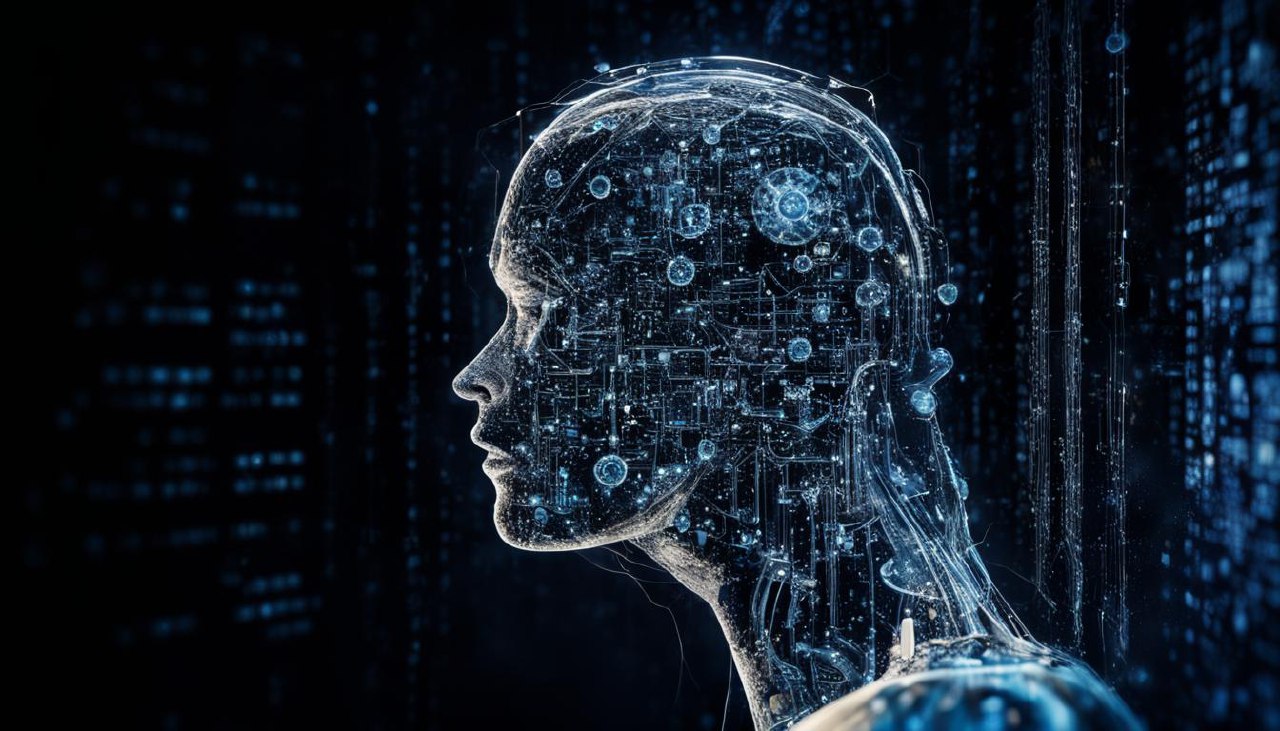Machine learning

Machine learning is a subfield of artificial intelligence that focuses on developing algorithms and models that allow computers to learn from and make decisions or predictions based on data. It enables machines to improve their performance on a task without being explicitly programmed, by identifying patterns and relationships within the data.
Key Concepts in Machine Learning:
Supervised Learning:
- In supervised learning, the model is trained on labeled data where both input features and output labels are provided. The goal is for the model to learn the mapping between inputs and outputs.
Unsupervised Learning:
- Unsupervised learning involves training models on unlabeled data where it needs to find patterns or structure in the input data itself without any explicit supervision.
Reinforcement Learning:
- Reinforcement learning is concerned with how agents ought to take actions in an environment in order to maximize some notion of cumulative reward over time.
Deep Learning:
- Deep learning uses neural networks with multiple layers (deep neural networks) to automatically learn representations of data at different levels of abstraction.
Types of Machine Learning Algorithms:
- Regression: Predicts continuous values based on input features.
- Classification: Predicts discrete categories or labels for given inputs.
- Clustering: Groups similar instances together based on certain characteristics.
Applications of Machine Learning:
Natural Language Processing (NLP):
- NLP techniques help computers understand, interpret, generate human language content like text and speech.
Computer Vision:
- Computer vision allows machines to interpret visual information from images or videos such as object detection, facial recognition, etc.
Predictive Analytics:
- Machine learning algorithms are used extensively for predicting trends, outcomes, or behaviors based on historical data.
Healthcare Diagnosis:
- ML models can assist medical professionals in diagnosing diseases early by analyzing patient records and test results effectively.
Recommendation Systems:
- E-commerce platforms use ML algorithms for personalized product recommendations for users based on their preferences and behavior.
Autonomous Vehicles:
- Self-driving cars leverage machine learning technologies like computer visionand sensor fusion for navigation and decision-making processes.
Machine learning has significantly impacted various industries ranging from finance to healthcare due to its ability to automate tasks efficiently using large amounts of data processed through advanced algorithms.
Sponsored
Sponsored
Sponsored
Explore More:

Model Evaluation and Selection
Topic model evaluation and selection are crucial steps in the process of building...

Feature Engineering
Feature engineering is the process of selecting, creating, and transforming features (inputs) in...

Natural Language Processing (NLP)
Natural Language Processing (NLP) is a subfield of artificial intelligence that focuses on...

Neural Networks and Deep Learning
Neural networks are a class of algorithms modeled after the human brain's neural...

Reinforcement Learning
Reinforcement learning is a branch of machine learning concerned with how intelligent agents...

Dimensionality Reduction: Autoencoders
Autoencoders are a type of artificial neural network used for learning efficient representations...

Dimensionality Reduction: Factor Analysis
Factor analysis is a powerful technique used in the field of machine learning...

Dimensionality Reduction: Independent Component Analysis (ICA)
Independent Component Analysis (ICA) is a dimensionality reduction technique commonly used in machine...

Dimensionality Reduction: t-Distributed Stochastic Neighbor Embedding (t-SNE)
Dimensionality reduction is a fundamental technique in machine learning and data visualization that...

Dimensionality Reduction: Principal Component Analysis (PCA)
Principal Component Analysis (PCA) is a popular dimensionality reduction technique used in machine...

Unsupervised Learning: Dimensionality Reduction
Unsupervised learning dimensionality reduction is a crucial concept in machine learning that deals...

Clustering: Gaussian Mixture Models
Clustering is a fundamental unsupervised learning technique used to identify inherent structures in...

Clustering: DBSCAN
DBSCAN (Density-Based Spatial Clustering of Applications with Noise) is a popular clustering algorithm...

Clustering: Hierarchical Clustering
Hierarchical clustering is a popular unsupervised machine learning technique used to group similar...

Clustering: K-Means
Clustering is an unsupervised machine learning technique that aims to partition a set...

Unsupervised Learning: Clustering
Unsupervised learning clustering is a fundamental concept in machine learning that involves identifying...